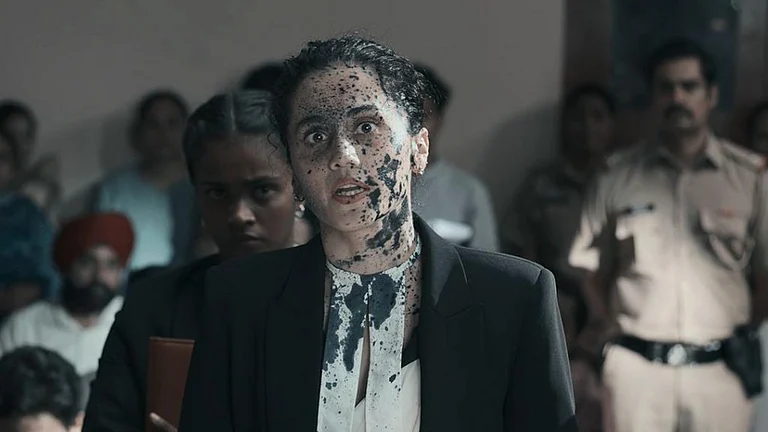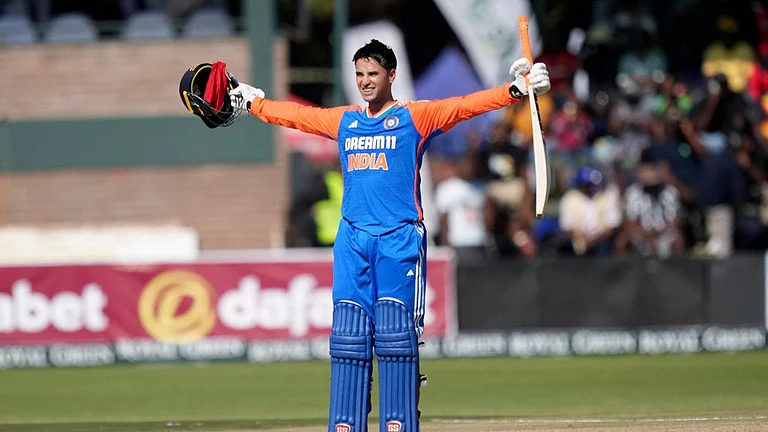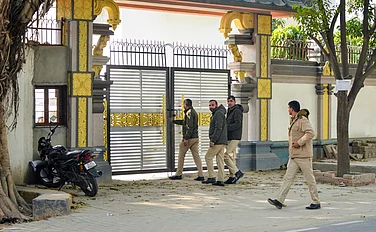The Supreme Court has questioned its own order of May 13, 2022, where the premature release of one of the convicts of Bilkis Bano was directed to the Gujarat government. The apex court on Tuesday wondered the legality of the convict's petition.
The Court of Justice BV Nagarathna and Ujjal Bhuyan raised pointed questions as to how the Supreme Court dealt with the writ petition in the case of the convict, Radheyshyam Bhagwandas Shah after his request that the Gujarat Government be called upon to rule on his remission plea was rejected by the Gujrat High Court.
Reportedly, the bench said that instead of lodging a writ petition, Shah was obliged to appeal against the order in question before the Supreme Court after the refusal of Gujarat HC in July 2019. Further, the bench noted that the apex court admitted his writ petition and directed the state government to decide his remission plea.
The court reportedly asked, "Is there any challenge to the Gujarat high court order? If not, then how did this court get jurisdiction to set aside the July 2019 order?” after acknowledging Bano’s petition that challenged the Gujarat government's decision to grant remission to the 11 convicts in August 2022.
According to a report by HT, the court also questioned the lawyer of the Gujarat government whether, before the Supreme Court passed its judgment in May, the state had raised the issue of the maintainability of Shah's plea before the court, enabling the government of Gujarat to consider the mercy plea of the convicts under the 1992 policy. After that when the 11 convicts including Shah moved for premature release, the state government freed all of them who were convicted of gang rape and murdering Bilkis Bano's family during the 2002 communal riots.
The court is now questioning how a petition that challenged a high court order was taken into consideration as a writ petition in the Supreme Court and the May 2022 order became a basis for the state government to release the 11 convicts.
In addition, it pointed out that Shah also approached the state of Maharashtra with a request for remission in view of the fact that the trial was conducted on its territory following an order issued by the Gujarat High Court in July 2019. In January 2008 the Supreme Court shifted the court proceedings in this sensitive case to a Mumbai court, which found all 11 defendants guilty and handed them life sentences.
Reportedly, the bench further noted that Shah approached the apex court with a filed writ petition along with an order that the Gujarat government could decide his remission plea under the 1992 policy before the Maharashtra government could make a decision on it. The 1992 policy had no restrictions on the early release of rape convicts contrary to the remission policy of 2014.
According to reports, the bench asked additional solicitor general SV Raju who is representing Gujarat,“Did you oppose this writ petition. He had gone to the Gujarat high court and acted upon the order of the high court by filing for premature release in Maharashtra on August 1, 2019. How was his writ petition entertained by this court? Did not the Gujarat government mention that his writ is not maintainable as he has already accepted remedy under Article 226 (high court’s writ jurisdiction)?”
The bench further asked ASG why, according to its position before the HC of Gujrat when it contested that the Maharashtra Government was the appropriate authority for considering remission pleas since the trial had taken place there, the State did not file a review application against the Supreme Court's May 2022 order. Raju, in turn, said he would attempt to reply to the court's questions during his argument.
Advocate Shobha Gupta, appearing for Bano, agreed with the court, saying that Shah was the only remedy available to him under the law, which was to file a special leave plea against the order of the High Court of Gujarat. She reportedly claimed, “Judicial order cannot be knocked off in an Article 32 petition (Supreme Court’s writ jurisdiction). The only remedy was to file a special leave petition. I have gone through Shah’s petition. He did not challenge the Gujarat high court order. Yet, the final judgment has been set aside."
Gupta stated that since the case has seen an enormous number of protests across the country, it is also appropriate for the court to take account of public outrage in determining whether a remission order was valid. Reportedly the bench then said, “Public outcry will not impact our judicial conscience. We will consider only legal submissions.”
Bilkis Bano was 21 years old when she was gang-raped in 2002 while she was fleeing the violence. Bano was five months pregnant and had a three-year-old child who was one of the seven people killed in the incident.
After convict Radheyshyam Bhagwandas Shah sought remission from the Supreme Court in April 2022 and argued that it has been 15 years of him being in prison, he and the 10 other convicted men were released on August 15, 2022. The Gujarat government had been ordered by a panel of judges headed by Justice Ajay Rastogi since his retirement in May 2022, to consider an appeal from prisoners seeking early release under the 1992 policy.
Several PILs were filed in the Supreme Court by Trinamool Congress MP Mahua Moitra and former CPI member MP Subhashini Ali, among others, in August 2022 after the release of the convicts created public outrage. And Bilkis Bano also approached the apex court against the Gujarat government's decision for freeing the convicted men.


























